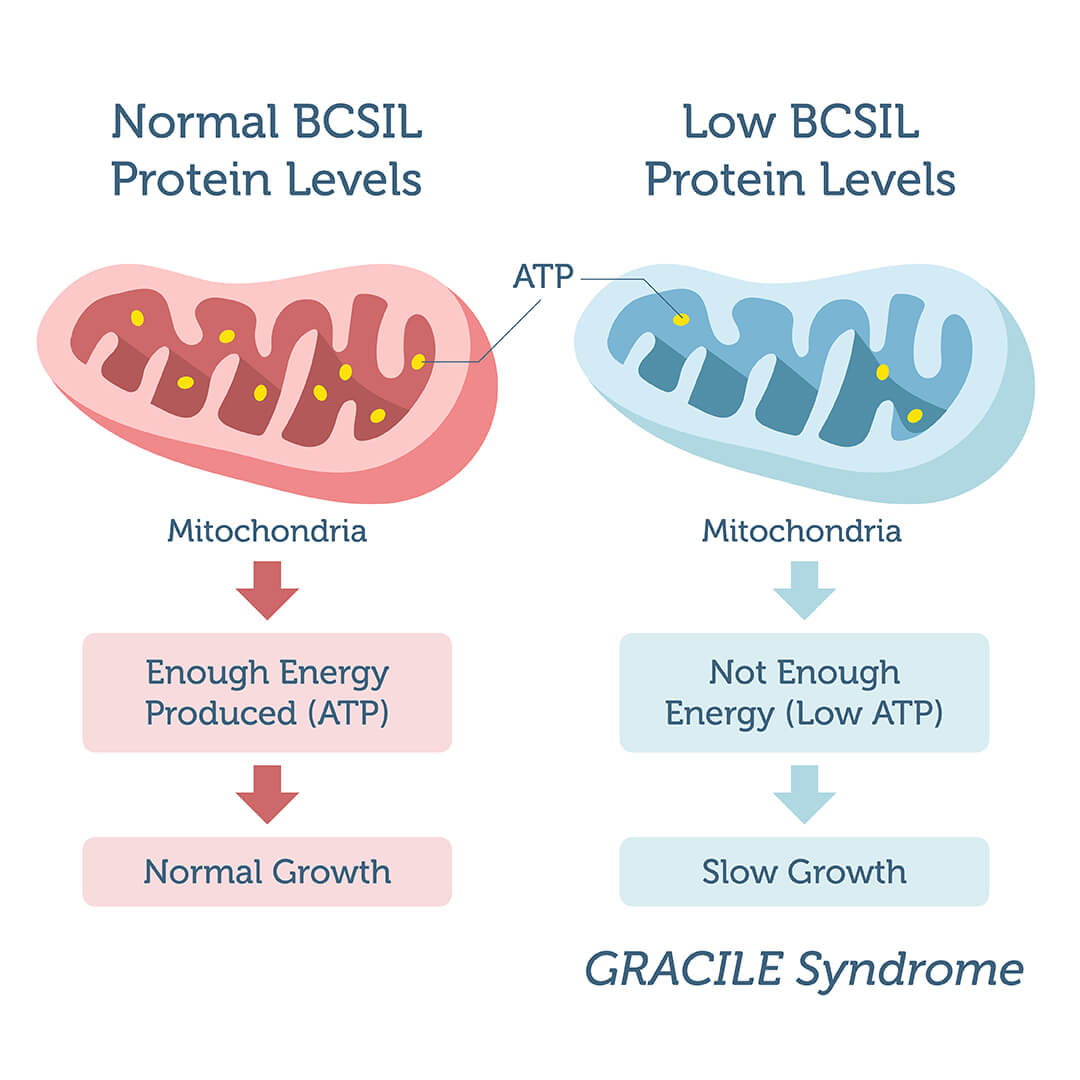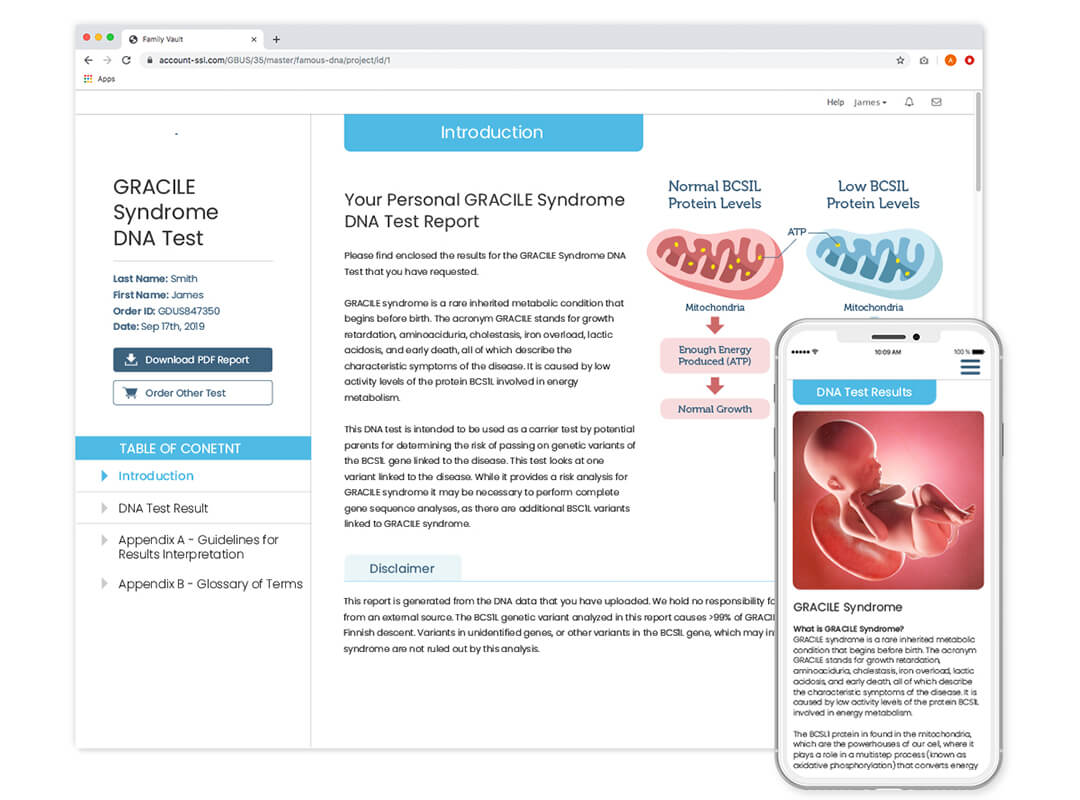Step 1: Sign up for a free Genebase account.
Step 2: Upload your DNA markers to Genebase.
Step 3: Login to your account to access your results when they are ready.
GRACILE Syndrome
Are you a genetic carrier for GRACILE syndrome? Find out with this DNA Test.
- Detects the BCS1L gene variant linked to GRACILE syndrome
- Carrier screening test intended for couples who are planning to become pregnant
- Determine the risk of your child inheriting GRACILE syndrome
- 100% private and confidential online results
Already have DNA markers? Sign in and upload your data to view results.
Need to take the DNA Test? Order our easy-to-use swab kit.
Detailed Description
GRACILE syndrome is a rare inherited metabolic condition that begins before birth. The acronym GRACILE stands for growth retardation, aminoaciduria, cholestasis, iron overload, lactic acidosis, and early death, all of which describe the characteristic symptoms of the disease. It is caused by low activity levels of the protein BCS1L involved in energy metabolism.
The BCSL1 protein in found in the mitochondria, which are the powerhouses of our cells. It is involved in a multistep process (known as oxidative phosphorylation) that converts energy from food to a form of energy that can be used by our cells. People affected with GRACILE syndrome make abnormal BCS1L protein that is broken down faster the normal. Without enough BCS1L, the amount of energy produces is severely reduced. This particularly affect organs that require large amounts of energy for function like the kidneys and the liver.
Take this test to find out whether you are a genetic carrier of the BCS1L variant and are at risk of passing it to your children. This is intended to be a carrier screening test for couples who are considering to start a family.

The Genetics
GRACILE syndrome is caused by genetic variation in the BCS1L gene. People with the genetic variant produce a BCS1L protein that is broken down faster than normal, thereby affecting the energy metabolism. Insufficient energy production leads to organ damage, particularly those that rely on high levels of energy such as the liver and kidneys.
It is inherited in an autosomal recessive pattern, which means two defective copies of the BCS1L gene must be inherited in order for the disease to manifest.

Variant Tested
This test looks at a genetic variants of BCS1L gene linked to GRACILE syndrome in people of Finnish descent.
- rs28937590
Understanding your carrier status will help you understand the risk of passing it to your children. While a carrier do not typically show signs and symptoms of the condition there is a 25% chance the child will inherit the disease if both parents are carriers.
Signs & Symptoms of GRACILE syndrome
Characteristic symptoms include
- Low birth weight
- Failure to thrive
- Excessive iron levels
- Lactic acid accumulation (lactic acidosis)
- Severe kidney problems caused by access amino acids in the urine (aminoaciduria)
- Reduced bile production (cholestasis) leading to irreversible liver disease
How It Works


